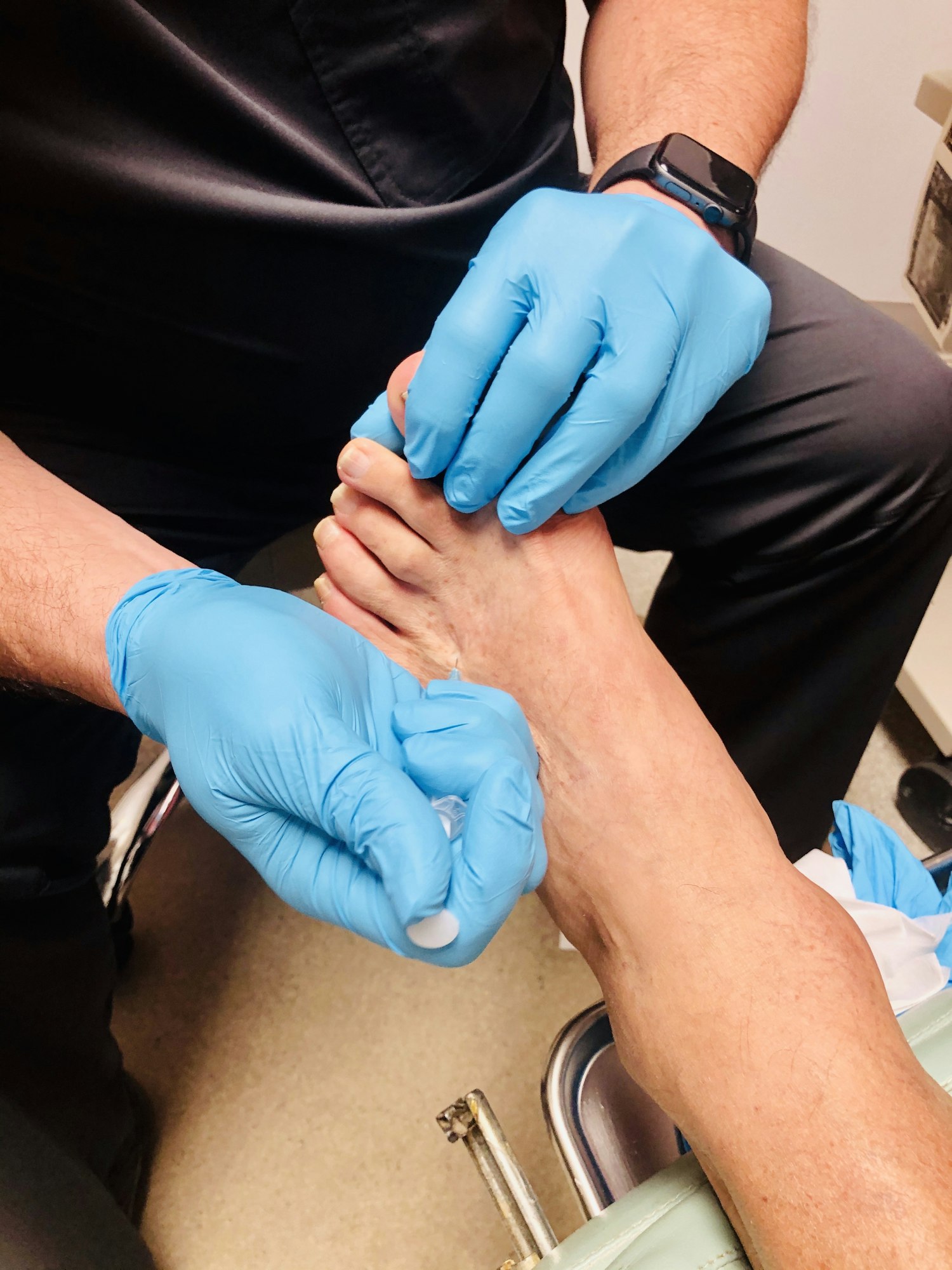Table of Contents
Introduction
Those with firsthand experience know how disabling a sore, stiff, or painful hip can be.
At bare minimum, it can make going about your daily tasks more challenging and uncomfortable—not to mention slow you down.
More than likely, though, you’ll also start to shy away from hobbies, sports, leisure activities, and family time events you used to enjoy because you just can’t keep up—or because it hurts too much to continue.
No one likes pain, and no one likes being relegated to the sidelines when the people they love are out having fun. Yet those same people may also drag their feet about seeing a doctor, especially if they’re afraid of getting bad news.
Well, we’re here to tell you that effective treatment options are available … and not all roads lead to surgery or hip replacement!
If you’re struggling with a hip that is going through any of the following scenarios:
- making it hard to perform everyday activities
- causing pain or limiting range of motion
- reducing stability when walking or standing
… and you want to restore and preserve your mobility, you owe it to yourself to visit an experienced orthopedist like Dr. Scott Fujii at Premier Podiatry & Orthopedics.
Step One: Identify a Cause
Before any treatment plan can be established and administered, of course, a confident and accurate diagnosis needs to be made. After all, the “right” fix isn’t going to do you much good if it’s meant to address a problem you don’t actually have!
It’s really important not to skip this step, especially considering that hip pain can be caused by so many different types of conditions and injuries. Here’s just a small sample of the possibilities:
- Loss of cartilage in the joint (osteoarthritis)
- Torn cartilage (hip labral tear)
- Inflammatory joint disease (rheumatoid arthritis)
- Inflammation of a hip bursa sac (bursitis)
- Tendinitis
- Pulled tendon or muscle (strain)
- Ligament sprains
- Dislocations
- Bone fractures
- Bone spurs
- Bone tissue death due to poor circulation (avascular necrosis)
- Pinched nerves
- It’s also important to consider how severe the discomfort is, as well as the extent to which it’s impairing your daily activities. Hip pain that is preventing you from sleeping comfortably or performing simple motions, for example, may require a more aggressive treatment approach than hip pain that is still easily managed with medications or isn’t limiting daily tasks or leisure activities.
Putting Together a Treatment Plan
Once we have a good idea of the nature of your injury, how bad it is, what you’ve already tried to do to manage it, and what your lifestyle goals are, we can begin to set about putting together an effective treatment plan.
As we’ve already mentioned, not all roads lead to a hip replacement! In fact, at Premier Podiatry & Orthopedics, we can often remedy mild-to-moderate hip pain with either conservative therapies or minimally invasive surgeries.
Conservative Options
Whenever possible, we will try to solve your hip pain (or at least help you manage it to the point where it is not interfering with living your best life) through nonsurgical means.
For certain types of injuries—particularly soft tissue injuries, and even some stable fractures—you may only need a little rest, anti-inflammatory medications, and a stretching program to help you increase your range of motion and strengthen weakened muscles, tendons, and ligaments. Intra-articular injections of cortisone are another common pain management strategy.
On occasion, we may refer you to outpatient physical therapy services.

Hip Surgery
If conservative treatments aren’t sufficient, we may have to consider performing hip surgery.
The good news is that many conditions can be treated using minimally invasive procedures, such as hip arthroscopy. This technique requires only a very small incision, after which we can perform the surgery using a special camera (arthroscope) and specially designed tools. It’s a good choice for several conditions, including bone spurs, labral tears, tendon tears, and joint inflammation. Some osteotomies can even be performed using arthroscopy!
Minimally invasive surgery has many benefits over traditional open surgeries, including lower infection risk, quicker recovery time, and less scarring.
Open surgeries do still have their place, though, as not all hip injuries can be treated using minimally invasive techniques. We will carefully consider all your surgical options and help you determine which will offer the best long-term results.
Hip Replacement
In extreme cases, the best option may be a total hip replacement. If you have severe arthritis, avascular necrosis, or other condition that’s causing persistent pain and limitation in your day-to-day life—even during sleep, and despite attempts to control the pain non-surgically—hip replacement may be right for you.
During this procedure, the damaged portions of your hip joint are removed, and replaced with prosthetics made from durable metal, ceramic, and/or hard plastic.
Hip replacement is a major surgery, so there are risks—and the road to recovery requires disciplined attention to your rehabilitation plan and may take several months. It’s also possible that the artificial joint will eventually wear out after 10-20 years of use, requiring another replacement.
That said, those who commit usually achieve excellent long-term results. Hip replacement technology and surgical techniques are improving all the time, and most people who undergo the procedure are able to return to normal daily activities, as well as moderately intense physical activity (swimming, hiking, golfing, cycling, etc.), without pain.
Don’t Jump to Conclusions—Know Your Options
Don’t let fear of the unknown prevent you from seeking help for your hip pain and exploring all the options available to you.
Our experts will make sure you are well cared for, and can offer an extremely wide variety of different treatment options. That way, we can work together to choose treatment procedures that make the most sense for both your current and desired lifestyle.
To schedule an appointment with us at either of our offices—Carmichael or Roseville—please give us a call today at 916-961-3434. You can also request an appointment online.
Looking to schedule an appointment with a physician?
Schedule an appointment with us by calling (916) 961-3434 or by clicking the button below to begin requesting your appointment today!



